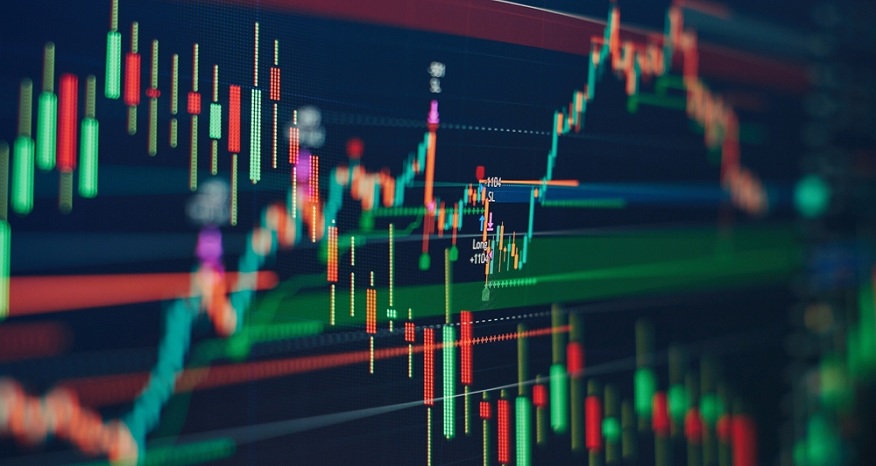
Unveiling the Best Micro Futures Broker and Analyzing Global Stock Index Charts
Introduction
In the dynamic landscape of financial markets, futures trading has emerged as a popular avenue for investors seeking opportunities beyond traditional stocks and bonds. Futures trading allows participants to speculate on the future price movements of various assets, including commodities, currencies, and stock indices. Choosing the right futures trading broker is crucial for success in this complex market. The key aspects of futures trading brokers, delve into the realm of micro futures trading and analyze the significance of global stock index charts.
Understanding Futures Trading Brokers
The Foundation of Successful Trading
Selecting a reliable futures trading broker is the cornerstone of successful trading endeavors. A futures broker acts as an intermediary between traders and the futures exchanges, facilitating the execution of trades. The broker’s platform, fees, customer support, and available resources play pivotal roles in determining the overall trading experience.
Features to Consider
When evaluating futures trading brokers, several features should be taken into account. A user-friendly trading platform with advanced charting tools, real-time market data, and seamless order execution is essential. Additionally, traders should assess the broker’s commission and fee structure, as well as margin requirements. Regulatory compliance, security measures, and customer support responsiveness are also critical factors to consider.
The Rise of Micro Futures
Micro futures have gained popularity among retail traders as they provide a cost-effective entry point into the futures market. These contracts allow traders to speculate on the price movements of various assets with lower capital requirements compared to standard futures contracts. Choosing the best micro futures broker is essential for maximizing the benefits of this accessible trading option.
Top Criteria for Micro Futures Brokers
Low Capital Requirements: A reputable micro futures broker should offer low minimum account balances, enabling traders with limited capital to participate in the market.
Comprehensive Education Resources: Since micro futures attract many novice traders, a broker that provides educational resources, tutorials, and webinars can significantly enhance the learning curve for those new to futures trading.
Competitive Fees: While micro futures contracts are designed to be cost-effective, traders should still compare commission and fee structures among different brokers to ensure they are getting the best value for their trades.
User-Friendly Platform: A user-friendly trading platform with intuitive navigation and robust charting tools is crucial for effective micro futures trading.
Risk Management Features: The best micro futures brokers offer risk management tools, including stop-loss orders and margin alerts, to help traders mitigate potential losses.
The Significance of Stock Index Charts
Global stock index chart serve as barometers for the overall health and performance of financial markets worldwide. Analyzing stock index charts allows traders to identify trends, potential reversal points, and crucial support and resistance levels. Whether trading equity index futures or using indices as indicators for other markets, understanding the dynamics of global stock indices is a valuable skill.
Key Components of Stock Index Charts
Trendlines: Drawing trendlines on stock index charts helps identify the prevailing market trend, providing valuable insights for trading decisions.
Support and Resistance Levels: Recognizing key support and resistance levels on stock index charts aids in determining potential entry and exit points for trades.
Technical Indicators: Utilizing technical indicators such as moving averages, Relative Strength Index (RSI), and MACD enhances the analysis of stock index charts, providing additional layers of information for traders.
Chart Patterns: Patterns such as head and shoulders, double tops, and flags can signal potential trend reversals or continuations, guiding traders in their decision-making process.
Risk Management Strategies
Effective risk management is paramount in futures trading, and this holds for both standard contracts and micro futures. Traders should implement sound risk management strategies to protect their capital and minimize potential losses. This involves setting stop-loss orders, diversifying positions, and carefully managing leverage. A reliable micro futures broker should provide robust risk management tools, helping traders navigate the inherent volatility of the futures market.
Leveraging Technology for Trading Efficiency
In the modern era, technological advancements have revolutionized the financial markets, and futures trading is no exception. Traders now have access to cutting-edge trading platforms and mobile applications that enable them to execute trades, conduct market analysis, and manage their portfolios on the go. When selecting a micro futures broker, it’s crucial to assess the technological capabilities of their trading platform, ensuring it aligns with your preferences and trading style.
The Role of Fundamental Analysis
While technical analysis and chart patterns are vital components of futures trading, understanding fundamental factors influencing the markets is equally important. Traders should stay informed about economic indicators, geopolitical events, and other macroeconomic factors that can impact the prices of commodities or indices. A well-rounded approach that combines both technical and fundamental analysis can provide a more comprehensive view of market conditions.
Micro Futures in a Diversified Portfolio
Micro futures can serve as valuable instruments for diversifying an investment portfolio. Investors often use micro contracts to gain exposure to asset classes with smaller capital requirements, reducing overall portfolio risk. Integrating micro futures into a diversified investment strategy allows for greater flexibility and the potential for enhanced returns, particularly for those looking to explore alternative markets beyond traditional equities.
Tailoring Strategies to Market Conditions
Successful futures traders adapt their strategies to prevailing market conditions. Whether markets are trending strongly, consolidating, or experiencing increased volatility, having a versatile set of trading strategies is essential. Micro futures traders should be adept at recognizing shifts in market dynamics and adjusting their approaches accordingly.
The Importance of Continuous Learning
Futures markets are dynamic and subject to constant changes. Therefore, traders should embrace a mindset of continuous learning. Staying updated on market news, attending webinars, and engaging with educational resources provided by brokers can contribute to ongoing skill development. The best micro futures brokers often offer a variety of educational materials and tools to support their clients in staying informed and improving their trading acumen.
Conclusion
In the ever-evolving landscape of financial markets, futures trading brokers, micro futures, and global stock indices play integral roles in shaping investment strategies. Selecting the right futures trading broker, with a focus on micro futures trading, can empower traders to navigate the complexities of the futures market efficiently. Additionally, analyzing global stock index charts enhances the ability to make informed decisions, whether trading equity index futures or using indices as indicators for other asset classes. As traders continue to explore diverse avenues in the financial markets, understanding these key elements will contribute to a well-rounded and informed approach to trading.


